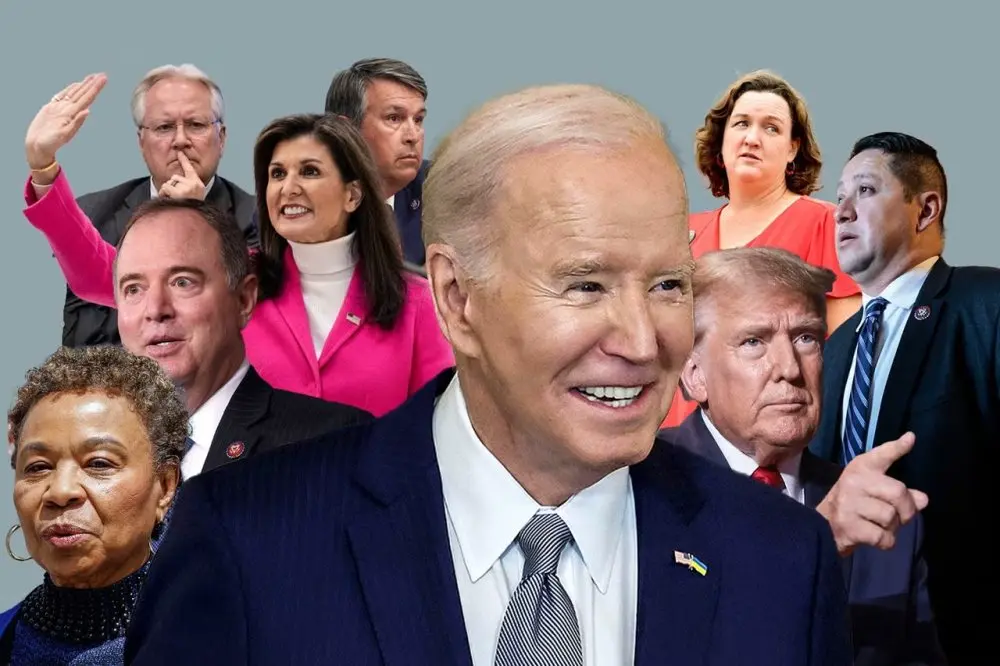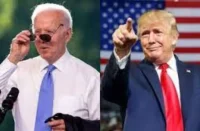On March 5th in the United States, the Super Tuesday took place, which, as usual, fulfilled its main function – indicating the leaders of both parties in the race for the position of President of the United States. Predictably, Joe Biden and Donald Trump won in the overwhelming majority of states. They became the Democratic and Republican contenders, respectively, for the highest office in the country.
Initially, Super Tuesday took place in 1988 when 14 southern states decided to hold a preliminary vote to strengthen the influence of voters from these states on the presidential race. What is its main essence? Super Tuesday significantly shortens the period of intra-party confrontation between candidates. On this day, the candidates for the presidency of the United States are practically determined in practice.
This time, Donald Trump won in all states except Vermont, where voters voted for former U.S. representative to the UN Nikki Haley. However, this victory should not be interpreted as a vote “for” Ms. Haley but rather as a protest against Trump. Generally, New England states often vote for Democrats, as there is a sizable population that favors liberal views, so the defeat in this state should not be taken seriously. Trump faces other, much more important tasks.
Nikki Haley suffered defeat on Super Tuesday and announced her withdrawal from the presidential race. Another interesting point: why didn’t she do this earlier, like Ron DeSantis or Vivek Ramaswami, knowing that her prospects for occupying the Oval Office were quite uncertain? The answer is simple. The former U.S. representative to the UN was supported by many of the wealthiest families in the United States. Initially, the Koch family, which owns the second-largest private company in the U.S., Koch Industries, was on her side. Later, sponsors of other candidates who dropped out of the race also joined her. This indicates that major industrialists, entrepreneurs, and financiers are not eager to see Donald Trump in the position of President of the United States. Apparently, he introduces too much uncertainty into America’s future, dividing the Republican Party from within into Trumpists and others. His decisions are sometimes impulsive and seemingly illogical, and big business is primarily interested in stability.
But what were the businessmen hoping for if they couldn’t do anything about the fact that Trump continues to remain popular among the electorate of the Republican Party in the United States? Apparently, considering that Nikki Haley withdrew her candidacy after the U.S. Supreme Court declared the ban on Donald Trump participating in the presidential elections unconstitutional according to the 3rd section of the 14th amendment to the U.S. Constitution, her team and sponsors were hoping for Trump’s exclusion from the election race. The decision to allow Donald Trump to participate in the elections in Illinois, Maine, and Colorado was supported by all judges, including the three who are considered supporters of the Democratic Party in the U.S.
 One cannot overlook how Trump unites the American people around him, promising to “make America great again.” This slogan resonates with people because they understand that of the two remaining candidates, Donald Trump is the most effective. What is even more important is that he manages to rally politicians who are willing to support his initiatives, seeing that his return to the White House is quite realistic. In particular, they thwart the initiatives of Democrats aimed at financing the war in Ukraine and expel those who, for some reason, agreed to cooperate with the Democrats. This is how Mitch McConnell paid for his career.
One cannot overlook how Trump unites the American people around him, promising to “make America great again.” This slogan resonates with people because they understand that of the two remaining candidates, Donald Trump is the most effective. What is even more important is that he manages to rally politicians who are willing to support his initiatives, seeing that his return to the White House is quite realistic. In particular, they thwart the initiatives of Democrats aimed at financing the war in Ukraine and expel those who, for some reason, agreed to cooperate with the Democrats. This is how Mitch McConnell paid for his career.
As for the Democratic Party in the United States, everything is quite simple. There is no theoretical alternative to Joe Biden within the Democratic Party, despite concerns from some experts about Biden’s age and his ability to effectively govern the country. The only exception is American Samoa, where voters supported local entrepreneur Jason Palmer instead of Biden.
Regardless of the ultimate outcome of the Presidential race in the United States, the country is in a very difficult situation. Firstly, gerontocracy has never led to anything good. A golden mean between a politician’s age and experience is necessary. Take Mitch McConnell, one of the most experienced senators in the U.S. At 82 years old, it is evident that it is time for him to retire. Or look at Joe Biden… Americans themselves say they are ashamed of such a President. But what can they do? Essentially nothing, as he is a representative of the political elite of America. Secondly, Donald Trump is dividing the Republican Party from within. Could this lead to a split among Republicans and the formation of a new party, consisting of ardent Trump supporters and far-right elements? It’s challenging to imagine, but possible, especially considering internal contradictions and the significant increase in illegal migrants since 2020. Thirdly, we are once again approaching the moment when one of the candidates will declare the “inefficiency of the existing electoral system,” as was the case in 2020 after Biden’s victory. Can the state independently initiate changes to the electoral system? At this stage – no, because the existing electoral system will always suit the winning side.
It seems that American society is not ready for the necessary changes. This is fraught with a social explosion that will lead not so much to a restructuring of social inequality and the formation of a new society, as it happened during the establishment of the United States. In the U.S., a country that nearly the entire impoverished population of Central and South America seeks to reach, this is a disaster because the foundation on which American statehood was built—an educated person of European origin ready to call the U.S. home—is lost. Trump understands this, but Biden does not. How this competition will end, we will find out at the end of this year.














Comments